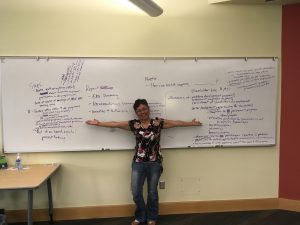April is financial literacy month! If you want to improve your knowledge and understanding of personal finance and other financial matters, you’re not alone. The library has numerous books to help you learn about these topics; see below for a selection of titles. Many of these items will be on display through April 15th.
This year, the library will be a location for DASH for the STASH, an investor education contest. One statewide winner will win a $1000 prize to open or add to a retirement investment account, courtesy of the Alaska Division of Banking and Securities and the nonprofit Investor Protection Institute. To participate, visit the library, read four informational posters, and correctly answer a question about each poster. DASH for the STASH will be available in the library through April 15th.
April 4-8, 2016, the $avvy $eawolf program will host a variety of financial literacy workshops across the UAA campus. See the event calendar here:
https://www.uaa.alaska.edu/financialaid/FinancialLit/finlitmonth2016.cfm.
Our two most recent presidents have both acknowledged the importance of financial education in America. With Executive Order 13455, former President Bush established the President’s Advisory Council on Financial Literacy, and President Obama established the President’s Advisory Council on Financial Capability for Young Americans with Executive Order 13646. You can find those Executive Orders here: https://www.federalregister.gov/executive-orders. The Financial Literacy and Education Commission, which is part of the U.S. Department of the Treasury, provides a listing of many financial education resources here: https://www.treasury.gov/resource-center/financial-education/Pages/commission-index.aspx.
Selected Titles:
Kiplinger’s money smart women [electronic resource]. Bodnar, J. (2007).
Make money, not excuses : Wake up, take charge, and overcome your financial fears forever [electronic resource]. Chatzky, J. S., & Denaker, S. (2006).
Your money or your life : Transforming your relationship with money and achieving financial independence. Dominguez, J. R., & Robin, V. (1999).
Common sense economics : What everyone should know about wealth and prosperity. Gwartney, J. D., & Gwartney, J. (2010).
Personal finance essentials. Heath, J. A., & Lopus, J. S. (2012).
Clark Howard’s living large for the long haul : Consumer-tested ways to overhaul your finances, increase your savings, and get your life back on track [electronic resource]. Howard, C. (2013).
Debt-proof living : The complete guide to living financially free. Hunt, M. (2005; 1999).
Retirement planning. Jasper, M. C. (2005).
Zero debt for college grads : From student loans to financial freedom. Khalfani-Cox, L. (2007).
The budget kit : The common cents money management workbook. Lawrence, J. (2008).
More than you know : Finding financial wisdom in unconventional places. Mauboussin, M. J. (2008).
How to get out of debt, stay out of debt & live prosperously. Mundis, J. J. (2003).
Combat finance : How military values and discipline will help you achieve financial freedom. Neddenriep, K. (2014).
Currency of the heart : A year of investing, death, work & coins. Nichols, D. R. (2002).
The index card : Why personal finance doesn’t have to be complicated. Olen, H., & Pollack, H. A. (2016).
The 9 steps to financial freedom. Orman, S. (1997).
Women & money : Owning the power to control your destiny [electronic resource] Orman, S., & Denaker, S. (2007).
Millennial money : How young investors can build a fortune. O’Shaughnessy, P. (2014).
Money, a memoir : Women, emotions, and cash. Perle, L. (2006).
Picture your prosperity : Smart money moves to turn your vision into reality. Rogin, E., & Kueng, L. (2015).
Smart is the new rich : Money guide for millennials. Romans, C. (2015).
Finance is personal : Making your money work for you in college and beyond. Stephenson, K., & Hutchins, A. B. (2015).
Debt cures “they” don’t want you to know about. Trudeau, K. (2008).
Personal finance for dummies. Tyson, E. (2006).
Financial literacy education : What do students need to know to plan for the future? : Hearing before the subcommittee on education reform of the committee on education and the workforce. United States Congress, House Committee on Education and the Workforce, Subcommittee on Education Reform (2004).
Consumer debt : Are credit cards bankrupting Americans? : Hearing before the subcommittee on commercial and administrative law of the committee on the judiciary. United States Congress, House Committee on the Judiciary, Subcommittee on Commercial and Administrative Law (2009).
The importance of financial literacy among college students : Hearing before the committee on banking, housing, and urban affairs, United States Senate. United States Congress, Senate Committee on Banking, Housing, and Urban Affairs (2003).
Budgeting pays off after school! William D. Ford Federal Direct Loan Program (2001).
100% financial literacy success. Wilson, G. (2013).


